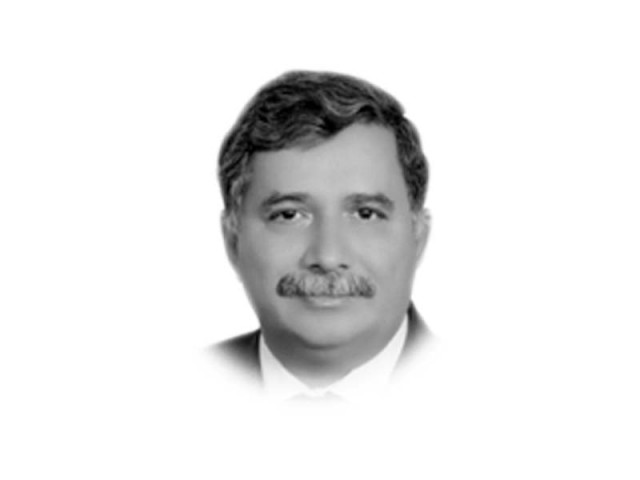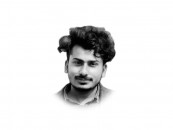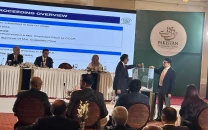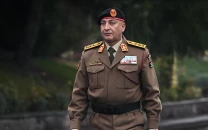Bacha Khan: an epoch-making personality
If we want to put an end to violence and extremism, we must make personalities like Bacha Khan our national heroes

The Awami National Party (ANP) launched a week-long centenary celebration of the Anjuman-i-Islahul Afghania on January 20, 2021, and to commemorate the death anniversary of Khan Abdul Ghaffar Khan, popularly known as Bacha Khan, the founder of the organisation. In this context, it can be said that the ideas and thoughts of great people have not only shaped the thought process of others but also guided the destiny of nations. And in the contemporary era, Lenin, Gandhi, Nelson Mandela and Bacha Khan stand out as the manifestation of their ideologies translated into an organised struggle.
While analysing the four leaders one has to be mindful of the socio-economic conditions as well as time and space wherein they lived. All four of them had different family and socio-economic backgrounds. But, the common denominator in their struggles had been emancipation from the yoke of imperialism and formulation of a society based on equality of opportunity with egalitarianism as the ethos. Gandhi, Lenin, and Mandela had the opportunity to acquire university education in law and exposure to the Western world, while Bacha Khan was reared in his own environment. Both Gandhi and Mandela had a fractured family life. As compared to them, Bacha Khan enjoyed a cordial family relationship immersed in the Pakhtun value system. While Mandela had recourse to armed struggle, Bacha used non-violence and passive resistance as his weapon. Selfless, radiating hope and inspirational, he had proven with his life that ideological pursuit remained paramount and not the worldly gains.
The land of Pakhtunkhwa, also described by historians as “Gandhara”, is diverse in geography with difficult terrains and valleys. A crossroads of civilisation with the high seats of Buddhist learning, inhabited by different tribes fragmented on ethnicity, it laboured under the yoke of British imperialism on which the sun would never set. It was also caught in the “Great Game” being played between the English and the Russians. It marked an epoch when such a splendid civilisation was plunged into bloody enmities, with cruelty sanctioned by a narrow definition of the Pakhtunwali code based on badal (revenge) and took delight in human blood. Bacha Khan was born during such a time in Utmanzai, Charsadda, on February 6, 1890.
In around 1909, Bacha Khan, the son of a landlord, like Gautama Buddha, made a tryst with destiny with his inclination towards education, tolerance, pluralism, emancipation from foreign yoke and imperialism, peace and tranquility based on non-violence, egalitarianism and social and economic justice, and freedom from vices.
Grappling with all dangers, his chemistry made it possible to conquer pain, avoiding the pleasures of life, to carry the message of peace, nonviolence and liberty to every nook and corner. Giving up on comforts, he walked on foot and used transport such as tongas to spread his message to even a solitary man living on the hill-top or a riverbed. And like a magnet, he attracted people towards his mission.
Though not lettered in the sense of modern education, he had the vision and comprehension of the power of knowledge and nationhood. Fully understanding that the underlying causes of the progress of the West laid in education, discoveries, invention, voyages and travelogues, he focused his energies on reformation, education and reawakening of the Pakhtuns as a single whole, and above tribal divides. With this mission he along with Haji Sahib Turangzia set the pace for educational institutions in the form of madrassas. In 1910, under the guidance of Bacha Khan, a madrassa was opened at Utmanzai, soon to be followed by a chain.
Observing his reformist activities with a disdain, the British considered him a threat to the British Raj. Using a soft approach through his father, they dissuaded Bacha Khan to not impart education; but with an unflinching commitment and resolve he refused to budge an inch.
The continuation of his reformist and political movement of such a magnitude, with a systematic awakening of people embroiled in enmities and social evils has not only remained a subject of enthralling interest to those involved in humanity but was also his crowning achievement. A child of his own time, representing the burning aspiration of the human soul for truth, purity, and justice, his message which was initially addressed to the Pakhtuns, became universal. Nonviolence, peace and justice are virtues which transcend boundaries and nations.
In a short span of time he mobilised and organised people into a society known as the Anjuman-i-Islahul Afghania in April 1921. His other outstanding feat was the publication of the Pashto-language journal, Pakhtun. The organisation, in the form of the Khudai Khidmatgar movement, was the pinnacle of his struggle, which helped in imparting political awareness to the people of the Pashtun belt. The British used all methods to torment him, but he held his ground. Having been haunted by the government, he found in Congress an ally struggling against the English. With this alliance, a struggle for political rights began across India till the time of emancipation.
Unfortunately, even after the departure of the British, the dreams of freedom in the form of fundamental rights could not be realised. With conviction and a belief in democratic values, Bacha Khan was again in the forefront against despotism and in the fight for rights of the people and federating units, undergoing all hardships at the hands of new tormenters. Had his warning against the forced policy of centralisation of different cultural entities of the country been heeded, East Pakistan might not have been lost. His predictions about the Afghan conflict were also foretelling, as the dabbling in Afghanistan brought nothing but tragedy and human misery all around. If we want to learn from history and want to put an end to violence and extremism, we must make humane and loving personalities like Bacha Khan our national heroes and make their teachings a part of the syllabus.
Published in The Express Tribune, January 27th, 2021.
Like Opinion & Editorial on Facebook, follow @ETOpEd on Twitter to receive all updates on all our daily pieces.
















COMMENTS
Comments are moderated and generally will be posted if they are on-topic and not abusive.
For more information, please see our Comments FAQ